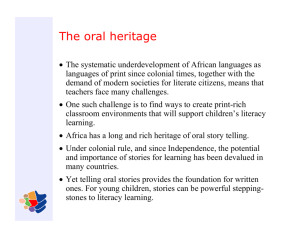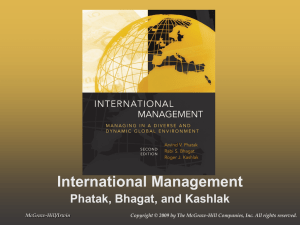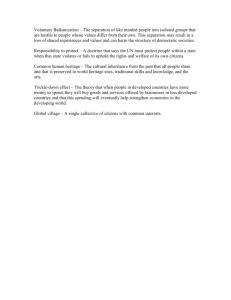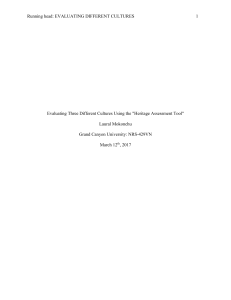This course would introduce students to the opportunities and expectations... academic and cultural environment, and encourage them to reflect, through...
advertisement
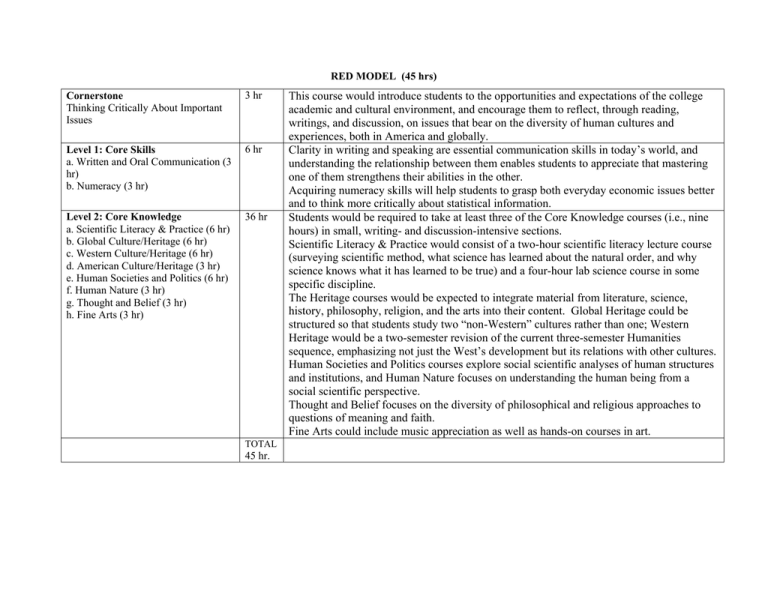
RED MODEL (45 hrs) Cornerstone Thinking Critically About Important Issues 3 hr Level 1: Core Skills a. Written and Oral Communication (3 hr) b. Numeracy (3 hr) 6 hr Level 2: Core Knowledge a. Scientific Literacy & Practice (6 hr) b. Global Culture/Heritage (6 hr) c. Western Culture/Heritage (6 hr) d. American Culture/Heritage (3 hr) e. Human Societies and Politics (6 hr) f. Human Nature (3 hr) g. Thought and Belief (3 hr) h. Fine Arts (3 hr) 36 hr TOTAL 45 hr. This course would introduce students to the opportunities and expectations of the college academic and cultural environment, and encourage them to reflect, through reading, writings, and discussion, on issues that bear on the diversity of human cultures and experiences, both in America and globally. Clarity in writing and speaking are essential communication skills in today’s world, and understanding the relationship between them enables students to appreciate that mastering one of them strengthens their abilities in the other. Acquiring numeracy skills will help students to grasp both everyday economic issues better and to think more critically about statistical information. Students would be required to take at least three of the Core Knowledge courses (i.e., nine hours) in small, writing- and discussion-intensive sections. Scientific Literacy & Practice would consist of a two-hour scientific literacy lecture course (surveying scientific method, what science has learned about the natural order, and why science knows what it has learned to be true) and a four-hour lab science course in some specific discipline. The Heritage courses would be expected to integrate material from literature, science, history, philosophy, religion, and the arts into their content. Global Heritage could be structured so that students study two “non-Western” cultures rather than one; Western Heritage would be a two-semester revision of the current three-semester Humanities sequence, emphasizing not just the West’s development but its relations with other cultures. Human Societies and Politics courses explore social scientific analyses of human structures and institutions, and Human Nature focuses on understanding the human being from a social scientific perspective. Thought and Belief focuses on the diversity of philosophical and religious approaches to questions of meaning and faith. Fine Arts could include music appreciation as well as hands-on courses in art.
